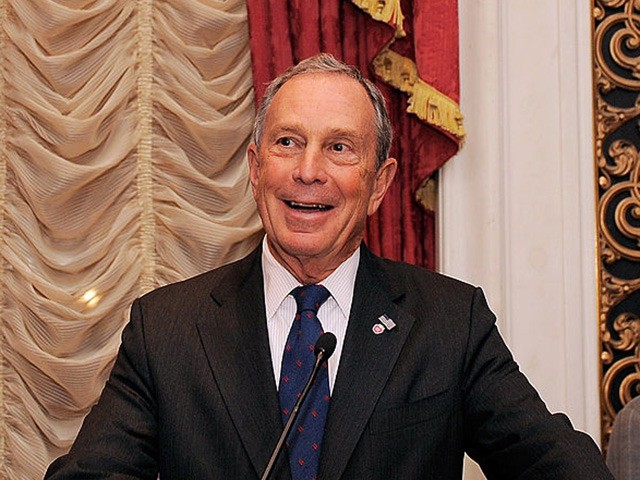Democratic presidential hopeful Mike Bloomberg suggested the governor of New York don a cowboy hat and stare down Native American tribes with a shotgun over a disagreement on cigarette taxes.
Bloomberg, who had then just been elected to a third term as mayor of New York City, made the insensitive comments during his weekly segment on WOR 710-AM with John Gambling in August 2010. At the time, then-New York governor David Patterson was proposing to tax cigarettes sold on Native American reservations in hopes of raising revenue to fill the state’s budget deficit.
The move was controversial as Indian reservations are technically sovereign entities that do not recognize U.S. law. It was also complicated by the fierce opposition prior attempts to impose taxes had engendered among Native American tribes. In particular, a 1992 attempt to institute a sales tax on Indian reservations resulted in members of New York’s Seneca tribe dropping burning tires off highway overpasses and clashing with state police.
Bloomberg, for his part, seemed unfazed by the history. During his appearance on Gambling’s show, the mayor not only expressed support for Patterson’s proposal, but intimated that a standoff between the governor and Native American tribes would be politically popular.
“I said, you know, ‘Get yourself a cowboy hat and a shotgun,'” Bloomberg told Gambling. “If there’s ever a great video, it’s [Patterson] standing in the middle of the New York State Thruway saying, you know, ‘Read my lips—the law of the land is this, and we’re going to enforce the law.'”
When Gambling suggested Patterson might be feeling pressure from the federal government to abandon the proposal, the mayor urged the governor to stand strong and act.
“Come on, then you do it and let the federal government sue us,” Bloomberg said. “This is an outrage. If you and I should pay taxes, everybody should pay taxes and this is just a scam to get around taxes… the cigarettes are killing our people.”
The comments quickly proved to be controversial and insulting in some quarters of the Native American community. The Seneca Indian Nation, the tribe at the center of the 1992 standoff with state police, went to the extent of demanding Bloomberg apologize for his “inflammatory and racially insensitive” remarks.
Bloomberg’s comments also failed to land with Patterson. A week after the Seneca Nation called for the mayor’s resignation, the governor lambasted Bloomberg for getting involved in a situation where he was not “responsible” and had no “jurisdiction.”
“I love the mayor, but this is a very dangerous situation. There is I think a high alert. The state police tell us over and over again that there could be violence and death as a result of some of the measures we’re taking,” Paterson said while making his own appearance on WOR 710-AM.
Bloomberg’s remarks come back into the spotlight as the former New York City mayor has catapulted to the front of the race for the Democrat presidential nomination. Polls show Bloomberg running neck-and-neck with his more progressive rival, Sen. Bernie Sanders (I-VT), despite not being on the ballot until Super Tuesday.
The mayor’s rise in the polls, however, has been confronted by decades of old comments many construe to be sexist and racist. One of those notable instances, as Breitbart News reported, occurred in 2011 when Bloomberg claimed on national television that young men of color “don’t know how to behave in the workplace.”

COMMENTS
Please let us know if you're having issues with commenting.